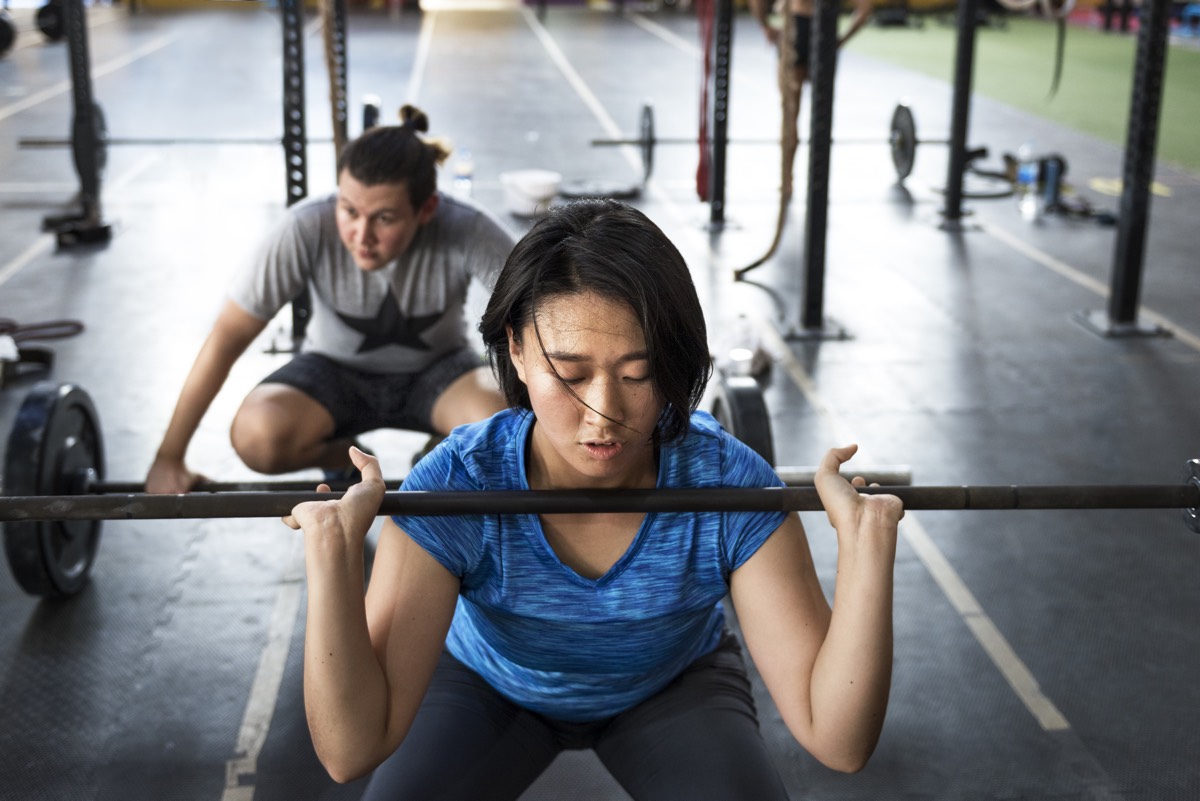
Can You Turn Fat into Muscle?

Get the world’s most fascinating discoveries delivered straight to your inbox.
You are now subscribed
Your newsletter sign-up was successful
Want to add more newsletters?

Delivered Daily
Daily Newsletter
Sign up for the latest discoveries, groundbreaking research and fascinating breakthroughs that impact you and the wider world direct to your inbox.

Once a week
Life's Little Mysteries
Feed your curiosity with an exclusive mystery every week, solved with science and delivered direct to your inbox before it's seen anywhere else.

Once a week
How It Works
Sign up to our free science & technology newsletter for your weekly fix of fascinating articles, quick quizzes, amazing images, and more

Delivered daily
Space.com Newsletter
Breaking space news, the latest updates on rocket launches, skywatching events and more!

Once a month
Watch This Space
Sign up to our monthly entertainment newsletter to keep up with all our coverage of the latest sci-fi and space movies, tv shows, games and books.

Once a week
Night Sky This Week
Discover this week's must-see night sky events, moon phases, and stunning astrophotos. Sign up for our skywatching newsletter and explore the universe with us!
Join the club
Get full access to premium articles, exclusive features and a growing list of member rewards.
Simply put, your body can't turn fat into muscle. And the reverse is also true: Your body can't turn muscle into fat, either.
The reason? Fat and muscle are two different types of tissue, and one cannot be converted directly into the other, said Brad Schoenfeld, an assistant professor of exercise science at the City University of New York's Lehman College.
"The best analogy I can use is, you cannot turn an orange into an apple," Schoenfeld told Live Science. What a person can do instead, however, is lose fat and gain muscle as two separate processes, he added.
Related: Why do men gain weight in their bellies?
To lose fat, you have to lose weight, Schoenfeld said, and losing weight requires burning more calories than you consume.
"It's a basic extrapolation of the first law of thermodynamics," Schoenfeld said, which states that energy, including the calories you eat, is conserved; it does not appear or disappear but simply changes form, whether it is burned to fuel bodily functions or stored as fat.
"That has been shown over and over again in highly controlled … studies," Schoenfeld said.
Get the world’s most fascinating discoveries delivered straight to your inbox.
But to lose fat without also losing muscle, you have to eat the right foods: If you cut your calorie intake and don't eat enough protein, weight loss can result in a decrease in not only fat but also muscle.
"It's been shown over and over that low protein intake [while cutting calories] leads to an accelerated loss of muscle," Schoenfeld said. To make up for the lack of protein in the diet, the body burns not just stored fat but also muscle, which is made of protein. When this happens, your muscle cells shrink.
To prevent this from happening, Schoenfeld said he recommends that people who are trying to lose fat but not muscle consume about 0.8 grams of protein per pound of body weight per day. For example, a person who weighs 150 lbs. should eat about 120 grams of protein per day, equivalent to the amount of protein found in about three cups of chopped chicken, or 3.5 four-ounce chicken breasts. (Of course, not all your protein has to come from one source!)This is the amount of protein required for anyone lifting weights, Schoenfeld said, an activity that is essential for losing weight without also losing muscle.
Lifting weights builds muscle
To gain muscle, you have to do two things: eat a sufficient amount of protein, and engage in resistance training (in which your muscles oppose a force), such as lifting weights, to tax the muscles and thus stimulate growth. In addition to weight lifting, other forms of resistance training include working with resistance bands and resisting one's own body weight, through exercises such as squats and push ups, Schoenfeld said.
Resistance training is essential for gaining muscle while losing fat, Schoenfeld said. "You certainly should lift [weights] a minimum of twice a week, working all your major muscle groups, to [slow] any loss of muscle," he said. (Always check with a doctor before starting a new exercise routine.) As your muscles get stronger, your muscle fibers get bigger in a process called hypertrophy.
While aerobic exercise is generally healthy, it's not good for building muscle, at least not beyond the very early stages of working out, Schoenfeld said. "The only way, really, to keep gaining muscle is to push your body over time," he said. During aerobic exercise, however, there's a limit to how much a person can tax his or her muscles, and it's not enough to make the muscles bigger, he said.
Muscle into fat?
You may worry that if you take time off from the gym, you'll get flabby. And that's a valid concern, Schoenfeld said.
But this doesn't happen because your muscle is turning into fat. Rather, if you're not lifting weights or doing some kind of resistance training, then you're not combatting age-related muscle loss, called sarcopenia.
Starting between ages 30 and 40, people naturally begin to lose muscle. More specifically, a person's individual muscle cells, called muscle fibers, begin to die, Schoenfeld said. [11 Surprising Facts About the Skeletal System]
So, as people get older, if they exercise less and continue to eat the same amount, or eat more, then they will also gain fat as they lose muscle.
However, age-related muscle loss "can be attenuated and completely obliterated if you lift weights, especially if you start lifting early," Schoenfeld said. Other forms of resistance training can also counteract sarcopenia, he said. "It is a function of the use-it-or-lose-it principle, and if you use it, you will not lose it."
Original article on Live Science.

Ashley P. Taylor is a writer based in Brooklyn, New York. As a science writer, she focuses on molecular biology and health, though she enjoys learning about experiments of all kinds. Ashley's work has appeared in Live Science, The New York Times blogs, The Scientist, Yale Medicine and PopularMechanics.com. Ashley studied biology at Oberlin College, worked in several labs and earned a master's degree in science journalism from New York University's Science, Health and Environmental Reporting Program.
 Live Science Plus
Live Science Plus










